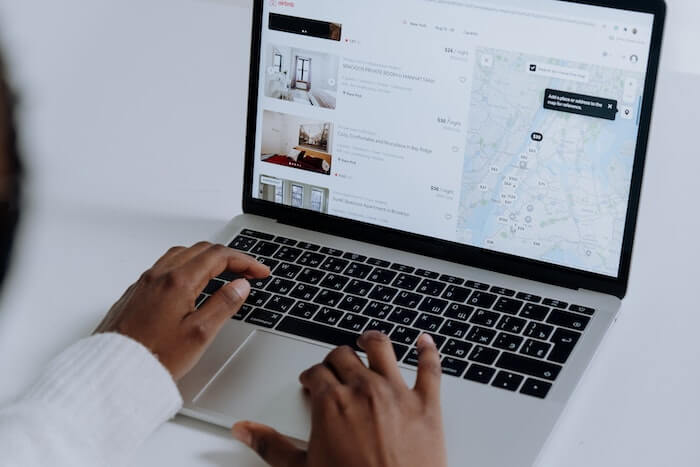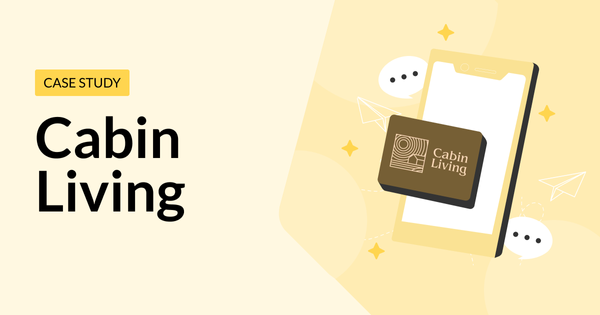How Much Does Airbnb Charge?

While there’s no doubt that a short-term rental business is a lucrative source of income, before you think about becoming a host, you should learn how much Airbnb charges in service fees.
On average, hosts who rent out a private room earn anywhere from $800 to $1,200 a month. No matter what kind of rental property you have, it’s essential to understand Airbnb’s service fees to manage your earnings and expenses.
Without understanding these Airbnb fees, you may be pricing yourself out of a profit by not calculating how Airbnb charge hosts and in what amounts.
Read on to find out everything you need to know about Airbnb service fees and techniques that will help you reduce their effect on your revenue.
What Are Airbnb Service Fees?
Airbnb service fees are the fees that Airbnb charges hosts for the ongoing products and services that they offer. Airbnb fees include booking fees and experience fees and help to keep all Airbnb operations running smoothly.

What Types of Airbnb Fees Does Airbnb Charge Hosts?
There are three main fees associated with the usage of Airbnb from a host’s perspective. Team Airbnb charge service fees to cover the expenses of running the Airbnb business and to ensure the company stays afloat (and turns a profit, of course). Here is a further explanation of each type of Airbnb service fee and how Airbnb calculate service fees:
Airbnb guest service fee
Guest service fees are charged to guests and calculated as a percentage of the booking value. In a nutshell, it covers the use of the Airbnb platform, access to the Airbnb Support infrastructure, and all of the other features that Airbnb offers. Depending on the location of the property listings, these fees vary anywhere from 5% to 15%.
Airbnb host service fee
Airbnb charge hosts a host service fee on every booking for facilitating that transaction. It covers the use of the platform itself, the support network, AirCover, and more. Typically, this fee structure sits between 3% and 5%, depending on the location.
Are there any additional fees associated with Airbnb?
There are more fees that can be charged on Airbnb, but these are from the host to the guest, and they usually depend on the circumstances of the booking. Even if the host has selected the host fee structure to rest solely on them, they can still charge the following:
Cleaning fees
Cleaning fees are a great way for hosts to offset some of the fees they have had to pay to Airbnb. Service and cleaning fees go hand in hand because they both affect the profitability of the Airbnb listing. Some hosts have asked “What percentage does Airbnb take from cleaning fees?” and the answer is, none.
Cleaning service fees are determined by the host, charged by the host, and paid to the host as part of the cost of the booking. It does not affect the total service fee.
Additional guest fees
Most hosts have a set number of people that their listing can accommodate. In some scenarios, guests will request additional guests and the host can then charge them for this. Guests pay for their extra numbers and the host benefits because the value of the booking is higher.
Additional guests may also occasionally lead to higher cleaning service fees, but this is down to the discretion of each individual host.
Security deposits
Many hosts elect to charge a security deposit, as it protects them from any property damage while a guest is staying in their listing. These are not typically charged as a percentage of the booking, but rather a fixed amount based on the value of the home and its contents.
Security deposits can range from a couple of hundred dollars to a couple of thousand, depending on various factors including house value, booking value, booking duration, number of people, and so on.
How Much Does Airbnb Charge Hosts For Their Service Fees?
At the moment, Airbnb offers two types of host service fees.
Split fee
Guests booking rental properties usually pay the bulk of the guest service fee, paying about 14% of the booking subtotal as an additional fee. This type of service fee is currently only available to certain hosts in location-dependent countries.
The split fee divides the service fee between hosts and guests. Hosts typically pay around 3% of the total booking cost to Airbnb, but hosts who use strict cancellation policies may pay more.
Host-only fee
Unlike the split fee, the host-only fee structure has eliminated guest fees, and instead, hosts pay the entire service fee. The service fee that hosts pay ranges from 14% upwards of the total booking cost.
Hosts who use strict cancellation policies are more likely to be charged a higher service fee compared to hosts with a moderate to flexible cancellation policy.
This fee structure is mandatory for hotels and most hosts and property managers around the world. As of 2020, the host-only fee increased by 15% and will apply to most hosts, with a handful of exceptions. These additional Airbnb host fees can be explored in more detail below:
Airbnb Experience Fees
Airbnb also charges hosts a service fee for any experiences they offer to guests. A host pays around 20% of the total cost of the experience as a fee, which is automatically deducted by Airbnb.
This service fee helps Airbnb cover the costs of the support and services they provide to hosts for experiences, such as 24/7 support and a dashboard of tools to help measure their success.
Despite a 20% deduction fee seeming fairly steep, hosts are free to set their own prices for their experiences, which allows them to factor in the fee deduction and set a fair price that will still allow them to generate a profit.

Is the Host-Only Service Fee Compulsory For All Airbnb Hosts?
As mentioned above, from December 7, 2020, Airbnb will be rolling out the Airbnb host fee for the majority of its hosts, including hosts who use third-party software to manage their listings.
This means that most hosts will be required to pay the entire service fee from their own rental income. Hosts will pay a service fee of 15% to Airbnb from December 7 onwards.
The host-only fee already applies to hosts in Europe, the Middle East, Africa, and the Asia Pacific region (excluding Japan) who registered with the platform from June 4, 2019, onwards.
They pay a host-only fee of 14% by default. In Croatia and Greece, the host-only fee model became mandatory on September 1, 2020.
The host-only fee structure will not apply to hosts who have most of their properties in the United States, Canada, Mexico, Bahamas, Argentina, Taiwan, and Uruguay. Hosts and rental managers in these countries can opt to keep a split-fee structure or adopt the newer host-only fee setup.

Why is Airbnb implementing this host service fee?
By implementing these Airbnb host fees, Airbnb guests will no longer be surprised by an additional fee added to their final charge at checkout. Hosts have more control over the prices they can set for guest bookings, and guests can see these final prices upfront without getting a surprise when they need to pay.
Switching to the host-only Airbnb service fee makes hosts a more attractive booking prospect for Airbnb as the platform will always want to prioritize hosts who make the booking experience better for guests. The hosts who have switched to a host-only fee structure on their Airbnb account often find themselves with slightly higher booking rates.
How will the host service fee affect existing bookings?
Current, existing bookings will not be affected by this update, but any bookings made on or after December 7 will be subject to the host-only fee on Airbnb.
Hosts who already use the host-only fee for their rental properties will be charged a 14% fee until January 2021, after which their service fee will increase to 15% or higher.
What steps should you take to implement this change in your business?
Make sure you update the information on your listings so that all information displayed is correct and up-to-date. If you are making changes to your rental price, also make sure your listings show the updated nightly rate.

What Are the Benefits of the Host-Only Service Fee?
No unexpected fees for guests, so they are more eager to book
All hosts who use the new service fee will have a 0% service fee displayed on their listings. This creates a more transparent booking process and will encourage potential guests to follow through with their bookings, as they won’t receive a sudden price hike right as they confirm their checkout and payment.
Lower guest fees can increase your bookings
A consequent benefit of the host-only fee is that your bookings are likely to increase. By increasing your rates, you can safeguard your net revenue, and guests will be eager to book as no additional fee will be applied.
Adopting the new fee could help with your Airbnb SEO ranking
Airbnb tends to rank listings as being higher when they offer more value to guests. Implementing the host service fee will not only encourage more guests to book your property but will also promote a simpler, better guest experience. This can help your listings to stand out and improve your ranking on Airbnb’s SERP pages.

How Can I Increase My Airbnb Payout?
Change your cancellation policy
Airbnb charges a higher host-only fee of 16% to hosts who use a super strict cancellation policy, whereas hosts who use a moderate or flexible policy are charged less.
By opting for a less rigid cancellation policy, you can lower your fee costs and easily increase your overall Airbnb payout. Due to the ongoing COVID-19 pandemic, guests will also be more likely to book a rental that offers a flexible cancellation policy.
Increase your occupancy rate
Another way to boost your payout is by increasing your occupancy rate. By opting for a flexible cancellation policy and refraining from charging a security deposit, you can encourage more bookings.
Consider also offering a variety of discounts and special promotions to attract guests to book with you. All of them can be easily set in your Airbnb listing settings.
- Early-bird discounts: offer a discounted rate for guests who book their stay several weeks or months in advance.
- Last-minute discounts: guests who book 24 hours or less with you before check-in receive a slight discount to help persuade them to choose your rental over another.
- Duration discounts: set up a discount for guests who book 28 days or longer with you.
- Off-season promotions: offer a reduced rate during your low season, or offer a special promotion, such as free airport collection, to boost your occupancy rate.
- Repeat guest promotions: Tell your guests that if they choose to book with you again in the future, they will receive a slight reduction in rate.
Rethink your pricing using smart calculation strategies
Even though the host-only fee can bring in more bookings for your business, you are still paying a higher fee than before. To ensure the fee doesn’t cut into your net earnings, be sure to calculate your ideal nightly rate, considering the higher fee you will be paying given a new fee structure.
To maximize your profits, change your prices regularly according to seasonality and changes in market supply and demand. The best idea would be to use a dynamic pricing tool to help you define and set accurate prices.
Sell additional services
Increase your vacation rental revenue by selling additional Airbnb services. Services you can offer include guided tours, laundry and dry cleaning services, bike rentals, and meal preparation. By providing extra services that you can charge for, you can help boost your rental income and make your listing more appealing.

Set up an Airbnb cleaning fee
Charging an Airbnb cleaning fee is another way to increase rental income, as most guests accept cleaning charges. Make sure the cleaning fee you decide on is in line with the average amount your competitors are charging.
Not all hosts charge a cleaning fee for their vacation rentals. Often their decision is based on things like their rental size, location, amenities offered, and whether their competitors are charging as a cleaning fee.
Conclusion
Another way to save time and increase revenue is to use vacation rental software to manage your business operations. Vacation rental software, like iGMS, allows you to run your short-term rental business on autopilot by automating routine tasks:
- Manage your multiple listings and accounts on Airbnb, Booking.com, Vrbo, and other platforms via an advanced channel manager;
- Create automated messages and manage guest communications via a unified inbox;
- Coordinate cleanings and auto-assign tasks to your team members;
- Create review templates and automate the process of leaving reviews for guests;
- Track your business growth and payouts with smart reporting tools;
- Create your own direct booking website with the iGMS Website Builder;
- Receive payments and generate invoices by connecting your Stripe account to iGMS.






